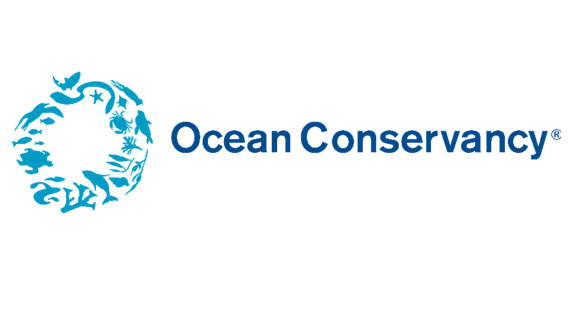New Analysis Shows Plastic Bag Bans Help Prevent Plastic Pollution
September 09, 2024
Today, Ocean Conservancy scientists have released a new analysis that shows a correlation between an increase in statewide plastic grocery bag bans and a decrease in plastic grocery bags found on beaches and waterways by Ocean Conservancy’s International Coastal (ICC) Cleanup volunteers.

WASHINGTON – Today, Ocean Conservancy scientists have released a new analysis that shows a correlation between an increase in statewide plastic grocery bag bans and a decrease in plastic grocery bags found on beaches and waterways by Ocean Conservancy’s International Coastal (ICC) Cleanup volunteers.
The number of bags collected per ICC volunteer nearly doubled during the COVID-19 pandemic – a time at which single-use plastic bag usage surged and bag bans were paused due to COVID restrictions. However, since 2020, as the percentage of the U.S. population covered by statewide plastic bag bans has doubled from 12 to 25%, we have seen a subsequent 29% reduction in the number of plastic grocery bags collected per ICC volunteer in 2022-2023 relative to pre-pandemic levels (2013-2019). There are currently 11 states with plastic grocery bag bans.
“Plastic bags are one of the deadliest forms of plastic pollution to marine life, and sadly, they are also one of the most commonly found polluting our beaches. The best way to prevent plastic grocery bags from becoming plastic pollution is by making and using fewer of them in the first place and this analysis confirms that bans are an effective way to deal with this problematic plastic. We hope that this analysis will inspire other states to pass bans of their own,” said Dr. Anja Brandon, Ocean Conservancy’s director of plastics policy and an environmental engineer who has helped draft landmark state and national legislation regulating plastic pollution in recent years.
The data used in this analysis was collected by ICC volunteers using the Clean Swell app or data sheets and contribute to Ocean Conservancy’s marine litter database. This database is the world’s largest repository of marine debris data and is used to inform scientists, conservation groups, governments, and industry leaders about ocean trash in support of plastic pollution prevention and advocacy efforts. ICC data have been instrumental in spurring policy change from being used to promote California’s SB 54 in 2022, the Farewell to Foam Act in 2023, the Florida balloon release ban in 2024 , and advocate for source reduction in the upcoming plastics treaty. Ocean Conservancy also named plastic bags as one of five most commonly collected ICC items that should be banned in a report from 2023.
Since the first ICC in 1986, over 18 million volunteers have joined local cleanup efforts big and small to remove over 385 million pounds of trash from beaches and waterways around the globe, making it the largest beach and waterway cleanup in the world. The 2024 ICC is currently underway, and you can visit seathechange.org to find a cleanup near you.
“Plastic bags are one of the deadliest forms of plastic pollution to marine life, and sadly, they are also one of the most commonly found polluting our beaches. The best way to prevent plastic grocery bags from becoming plastic pollution is by making and using fewer of them in the first place and this analysis confirms that bans are an effective way to deal with this problematic plastic. We hope that this analysis will inspire other states to pass bans of their own,” said Dr. Anja Brandon, Ocean Conservancy’s director of plastics policy and an environmental engineer who has helped draft landmark state and national legislation regulating plastic pollution in recent years.
The data used in this analysis was collected by ICC volunteers using the Clean Swell app or data sheets and contribute to Ocean Conservancy’s marine litter database. This database is the world’s largest repository of marine debris data and is used to inform scientists, conservation groups, governments, and industry leaders about ocean trash in support of plastic pollution prevention and advocacy efforts. ICC data have been instrumental in spurring policy change from being used to promote California’s SB 54 in 2022, the Farewell to Foam Act in 2023, the Florida balloon release ban in 2024 , and advocate for source reduction in the upcoming plastics treaty. Ocean Conservancy also named plastic bags as one of five most commonly collected ICC items that should be banned in a report from 2023.
Since the first ICC in 1986, over 18 million volunteers have joined local cleanup efforts big and small to remove over 385 million pounds of trash from beaches and waterways around the globe, making it the largest beach and waterway cleanup in the world. The 2024 ICC is currently underway, and you can visit seathechange.org to find a cleanup near you.
Get an instant offer on your damaged car
This service is only available to US clients.

Get an offer instantly
Just tell us a bit about your car and boom, there's your offer.

Free pickup
You have seven days to accept our offer and schedule pickup.

Get paid on the spot
Our pickup partner will do a quick inspection, and hand you a check.
Call Now
(855) 917-4046
Or